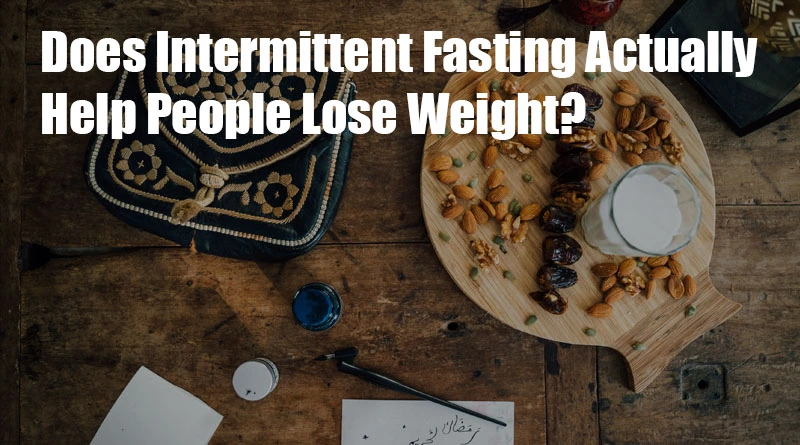According to one study, fasting may not be as beneficial as we had imagined.
The perfect anti-inflammatory diet has long been marketed as intermittent fasting; we even conducted a thorough investigation into its mechanics (and busted a few intermittent fasting myths).
Although the practise takes many different forms, the fundamental idea remains constant: eating is limited to a certain time period in order to get alleged advantages including greater health, smoother skin, deeper sleep, and more.
The health and wellness industry was up in arms when a recent study appeared to disprove these advantages, with the New York Post declaring the “Much-hyped intermittent fasting diet” to be “nonsense.”
However, other experts believe that when media condemned the practise in its entirety, they may have overreacted.
1-Information about Intermittent Fasting:
The recently released study, which was published in JAMA Internal Medicine, was organised by researchers at UC San Francisco. It looked at one of the most well-liked variations of IF: eating only during eight-hour periods separated by 16 hours of fasting.
116 men and women with a BMI between 27 and 46 were involved in the study.
It was discovered that individuals who were given the practise at random lost an average of 2 pounds daily, compared to 1.5 pounds for those who did not. Despite the disagreement, the research revealed no evidence of a significant difference in total fat mass, lean mass, fasting insulin, or resting energy expenditure between the two groups.
Some people who fasted even saw side effects including losing lean muscle. The study concluded that this practice was not effective on its own as a means of losing weight or improving key metabolic markers.
Corresponding author Ethan J. Weiss, MD, who has been following the practice for years, notes that he was “very surprised” with the results, noting that “we did not see important changes in any circulating biomarkers.”
Previous studies, mainly on mice, had promised benefits ranging from weight loss to longevity.
“I am not recommending [intermittent fasting] now,” he says, “but I am going to keep studying it.”
2-Resulting Implications for Intermittent Fasting:
However, this study does not entirely refute the advantages of the practise.
First off, some of intermittent fasting’s weight loss advantages are due to calorie restriction; less opportunities for eating during the day naturally result in a lower daily calorie intake. Since both groups consumed comparable amounts of calories, the study did not take this into consideration.
Second, losing weight is by no means the only advantage of IF. In actuality, “fasting is not the ideal strategy for weight loss,” claims fasting enthusiast and “Fit2Fat2Fit” author Drew Manning.
Instead, those who advocate fasting benefit from a variety of other advantages, such as lower blood sugar, assistance with cellular regeneration, improved digestion, and enhanced heart health.
“Eat to Beat Disease: The New Science of How Your Body Can Heal Itself” author William W. Li, MD, notes that a substantial body of laboratory and clinical research demonstrates that intermittent fasting, when combined with a healthy diet, can confer biochemical benefits that support our body’s health defences.
These advantages include included enhancing the gut flora, regenerating immunological cells, and suppressing the growth of malignancies by cutting off their blood supply.
Even if a person reaches their optimal weight and weight loss stops, intermittent fasting has numerous other advantages, according to the author.
“TRE [Time-Restricted Eating] achieves glucose homeostasis, insulin use, immune stem cell activation, epigenetic alterations to genes, etc. TRE increases longevity in mammalian species, practically all of which have been investigated.
Even faster metabolisms have been linked to long-term sustained weight loss, according to a research in the American Journal of Clinical Nutrition.
How to properly fast:
It takes more than just fasting to get the full advantages of the discipline, including weight loss.
Nearly all of our experts also pointed out that the study did not look at the types of meals that individuals were consuming during their feeding windows, which is a crucial component of any intermittent fasting regimen.
According to Li, “intermittent fasting is a beneficial tool to assist the body regulate its health defences,” but it must be used in conjunction with other aspects like eating healthy meals during feeding periods and regulating the amount of food consumed.
Manning advises adopting a whole food philosophy and combining the practise with a keto diet, which will make fasting easier.
Additionally, he advises being flexible with your regimen so that your body can continually adjust.
A second problem with the study is the 12- to 8-hour eating window, which Tara Stiles, a yoga teacher and the author of “Clean Mind, Clean Body: A 28-Day Plan for Physical, Mental, and Spiritual Self-Care,” points out as being imposed since it’s simpler for people to skip breakfast than dinner.
“I’d be curious to see if the same study expanded the time window to include breakfast (without making any other recommendations) might have a snowball effect, encouraging people to go to bed earlier, skip expensive dinners out more often, and prepare wholesome meals at home more frequently “she claims. “Any significant change in behaviour necessitates a change in lifestyle, and it is better when this change is motivated by a genuine desire to feel better, which reduces stress, rather than by going on a diet out of fear, which only serves to increase stress and lead to failure.
In the end, fasting is similar to any eating plan in that it functions best when combined with other healthy routines.
It’s one of the tools we have, adds Manning. “As long as it’s done properly, it can be used efficiently, and I’ve had countless individuals lose weight and fat on this approach.”

